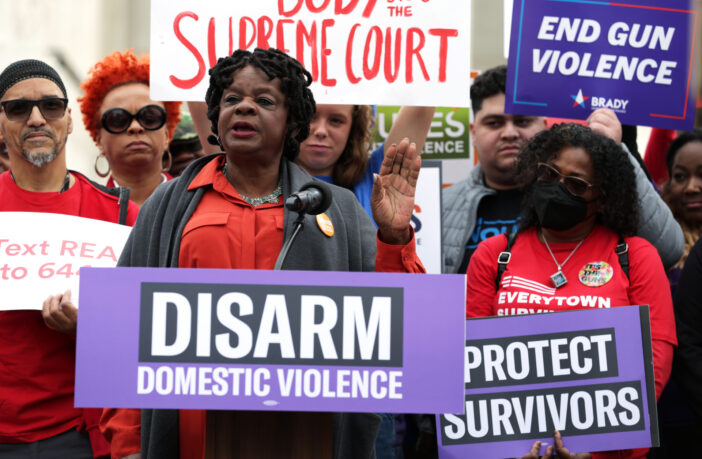In a landmark decision, the Supreme Court has upheld a crucial federal law that bans individuals under domestic violence restraining orders from owning firearms. This ruling stands as a protective shield for countless domestic violence victims, affirming the importance of safeguarding vulnerable individuals against the threat of gun violence.
The court’s decision reverses a contentious ruling by the federal appeals court in New Orleans, which had previously struck down the law. This decision, celebrated by advocates for domestic violence victims, is seen as a significant victory for President Joe Biden’s administration, which has been steadfast in its efforts to maintain stringent gun control measures amidst a landscape of expanding firearm rights.
According to a report by the National Library of Medicine, “More than half of female homicide victims are killed by a current or former male intimate partner, and 96% of murder-suicide victims are female. Firearms are used in more than 50% of these IPV-related homicides.” These stark statistics underscore the deadly intersection of domestic violence and gun access, highlighting the critical need for laws that restrict firearm possession among abusers.
Ruth Glenn, a tireless advocate for domestic violence survivors, knows this reality all too well. Her estranged husband, Cedric, was under a court order to stay away from her, but no federal law at the time prohibited him from possessing a gun. Tragically, Cedric used a firearm to carry out a violent attack. “He would not have been able to access that gun if we had these current laws in place,” Glenn said in an emotional interview outside the Supreme Court. The National Coalition Against Domestic Violence says, “An estimated 51.3% of Black adult female homicides are related to intimate partner violence. 57.7% of Black adult female homicide victims were murdered with the use of a firearm. For female victim/male offender homicides, Black females had the highest rate at 2.55 per 100,000.”
The 1994 ban on firearms for individuals under restraining orders was part of the broader Violence Against Women Act (VAWA), a groundbreaking piece of legislation that provided substantial funding and resources to combat domestic violence and other gender-related crimes to protect women from violence.
The recent Supreme Court ruling comes right after the Bruen decision in June 2022, which expanded Americans’ gun rights and changed the judicial approach to evaluating firearm restrictions. Justice Clarence Thomas, who was the only Justice to dissent the ruling, emphasized that judges should only consider whether a law aligns with the nation’s historical context of gun regulation, rather than its potential to enhance public safety.
Despite the shifting legal landscape, the Supreme Court’s decision to uphold the domestic violence gun confirms the protection of domestic violence victims is still concerning. America continues to face the complexities of gun rights and public safety. Upholding justice and safety gives some hope to domestic violence survivors.
This victory is not just a legal triumph but affirmation that shouts every life matters and deserves protection with critical legislation such as this.



